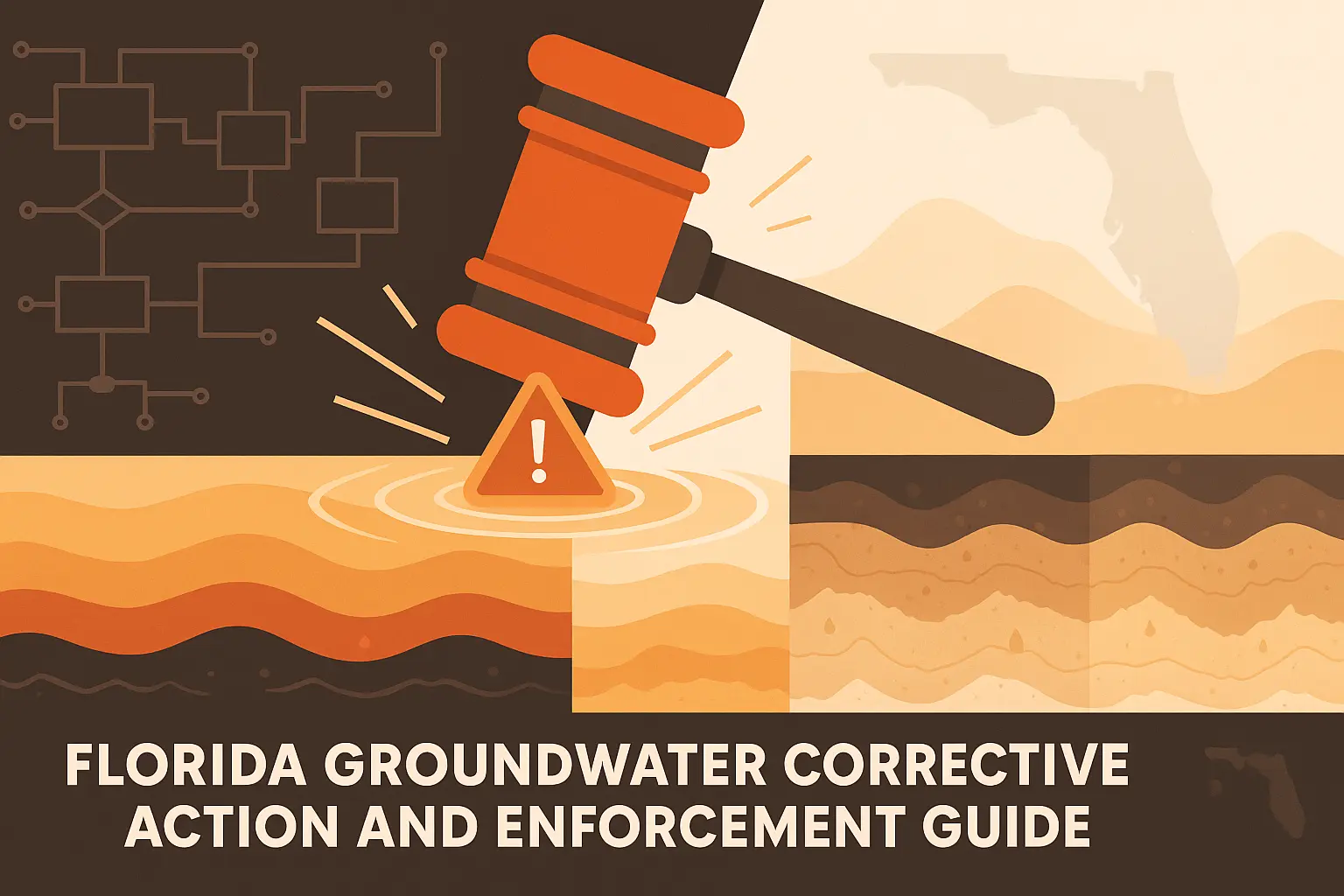
·
Florida Groundwater Corrective Action and Enforcement Guide
Understanding Rule 62-520.700 and Enforcement Procedures Table of Contents Introduction The Florida Department of Environmental Protection has broad authority to require corrective action when groundwater violations occur. This authority exists whether or not you have a permit, making it crucial to understand when and how the Department can act. Key Concepts Understanding corrective action requires…
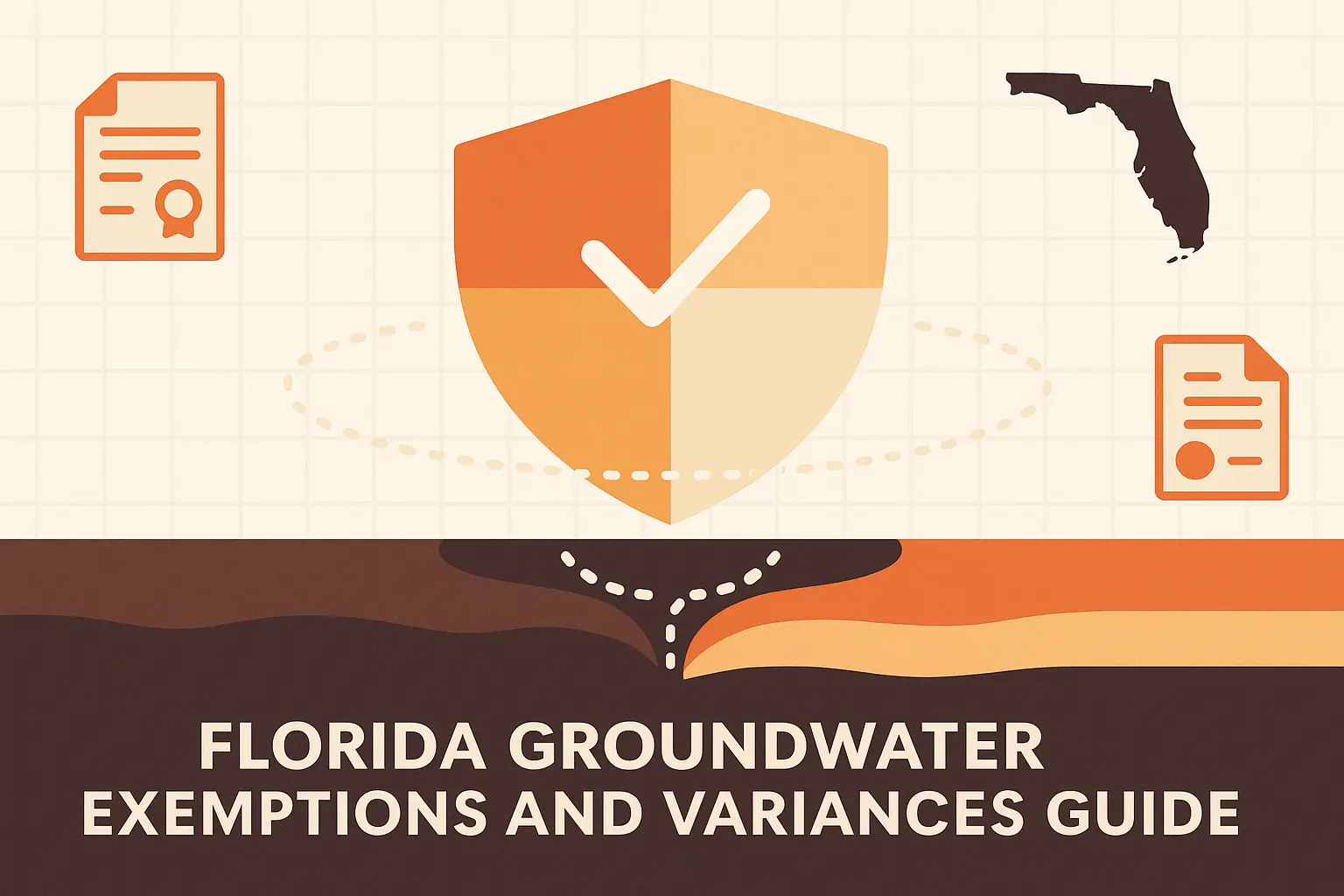
·
Florida Groundwater Exemptions and Variances Guide
Understanding Rules 62-520.500, 510, and 520 Table of Contents Introduction Florida’s groundwater regulations recognize that meeting every water quality standard isn’t always feasible or necessary in every situation. The exemption provisions provide flexibility while still protecting public health and the environment. This guide explains when and how facilities can obtain exemptions from certain groundwater standards.…
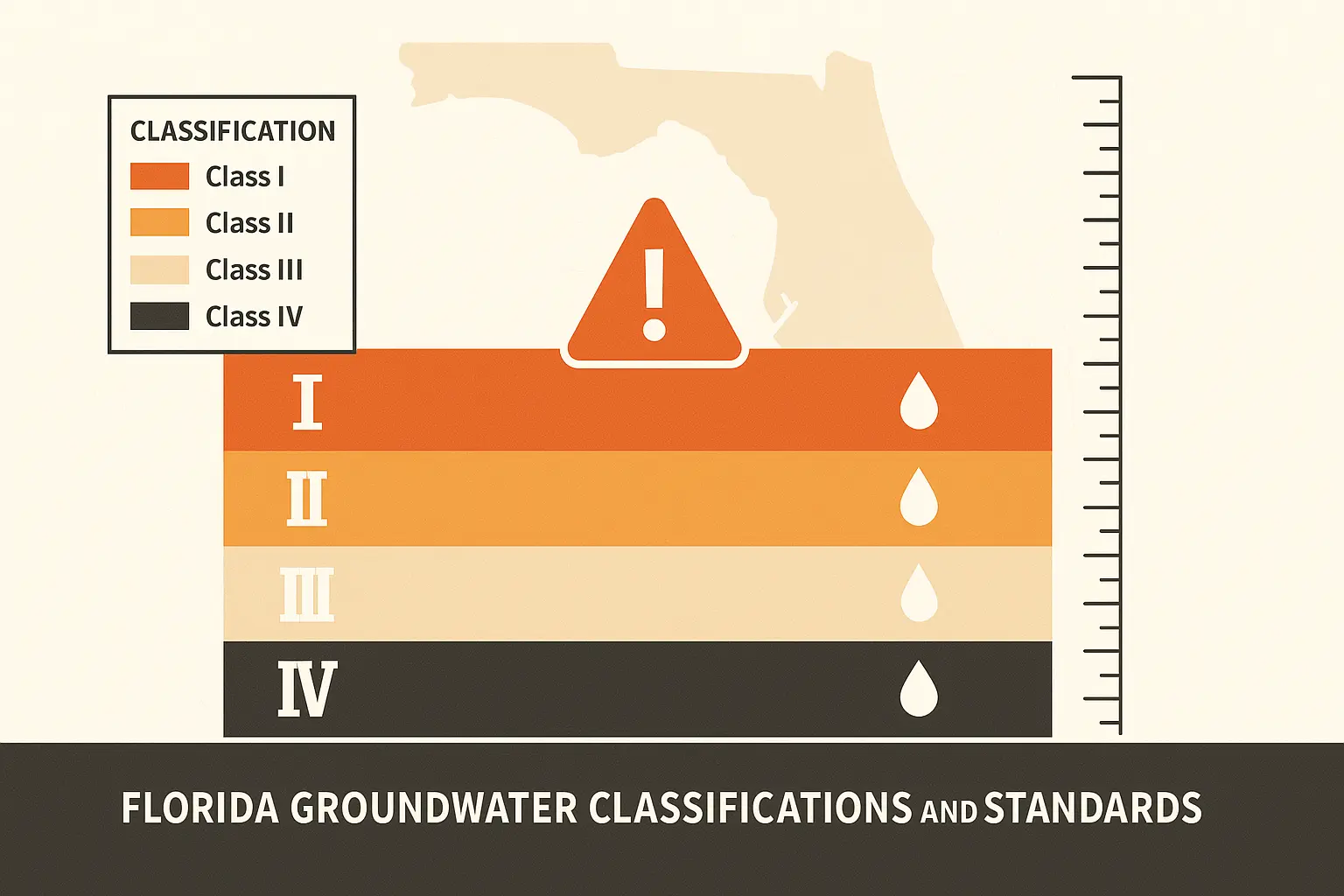
·
Florida Groundwater Classifications and Standards
Comprehensive Guide to Protecting Florida’s Underground Water Resources Table of Contents Section 1. Understanding Florida’s Groundwater Classification System 1.1 Purpose of Classification Florida’s groundwater classification system divides all underground water into distinct categories based on quality, current use, and potential for future use. This system, established under Rule 62-520.410, F.A.C., creates a hierarchy of protection…
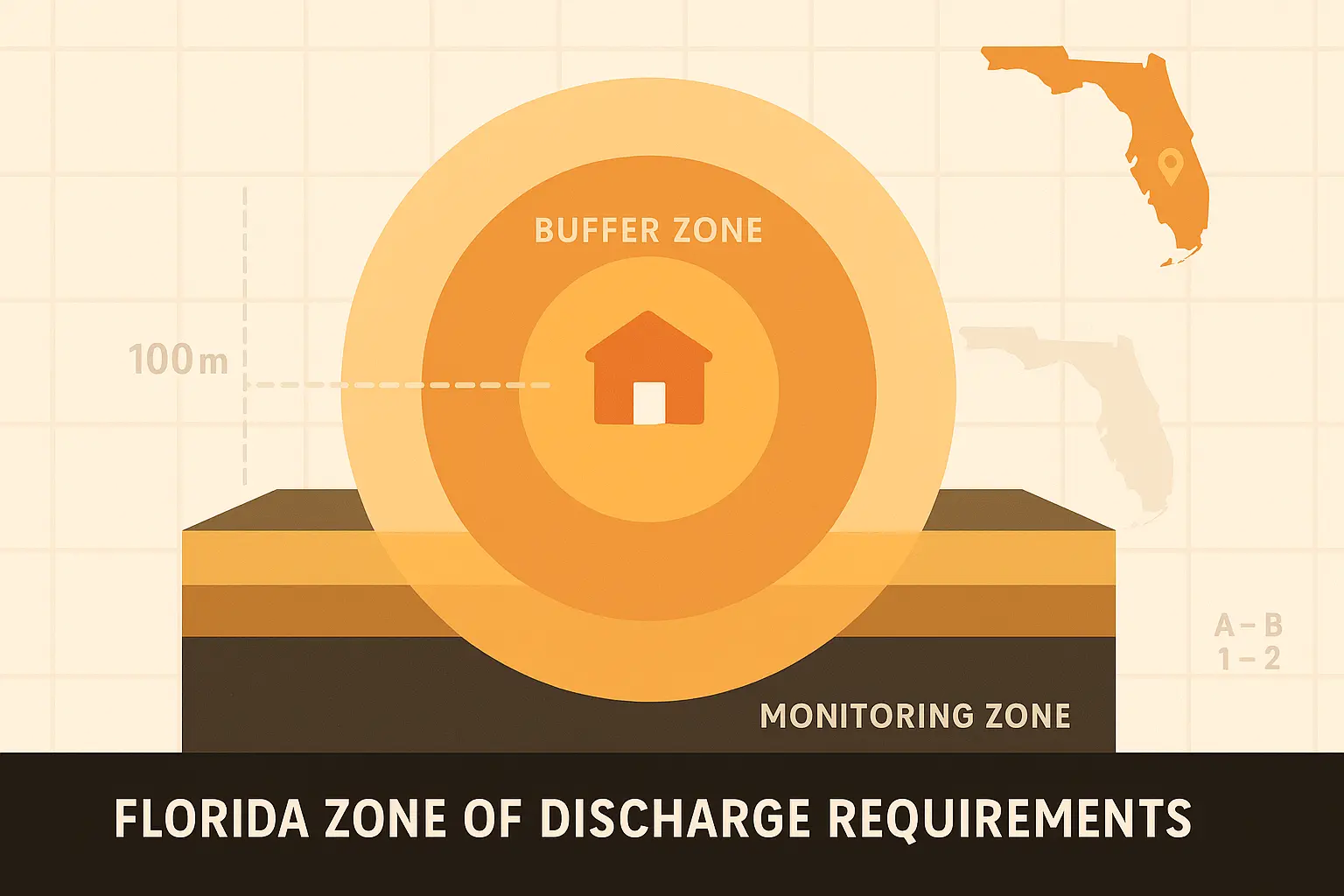
·
Florida Zone of Discharge Requirements
Comprehensive Guide to Buffer Zones in Groundwater Regulation Table of Contents Section 1. Understanding Zones of Discharge 1.1 Definition and Purpose A zone of discharge is a three-dimensional volume of ground and groundwater surrounding a discharge point where limited exceedance of water quality standards is allowed. Rule 62-520.200(27) defines it as “a volume underlying or…
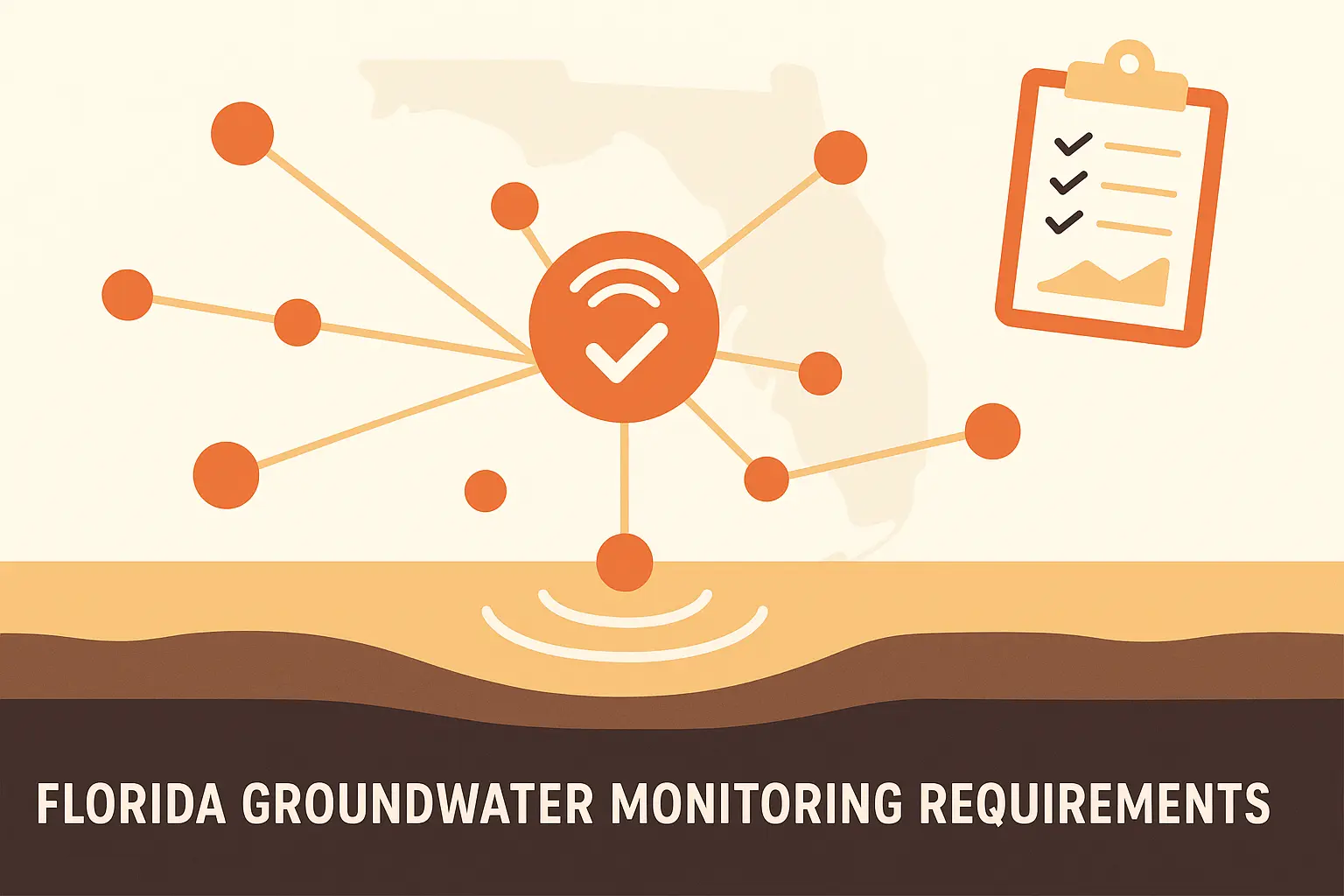
·
Florida Groundwater Monitoring Requirements
Comprehensive Legal Guide to Rule 62-520.600 F.A.C. Table of Contents Section 1. Facilities Subject to Monitoring Requirements 1.1 General Monitoring Obligation Rule 62-520.600 establishes that every facility discharging to groundwater must implement a monitoring program unless specifically exempted by Department rule. This requirement applies regardless of facility size, discharge volume, or water quality impacts. The…
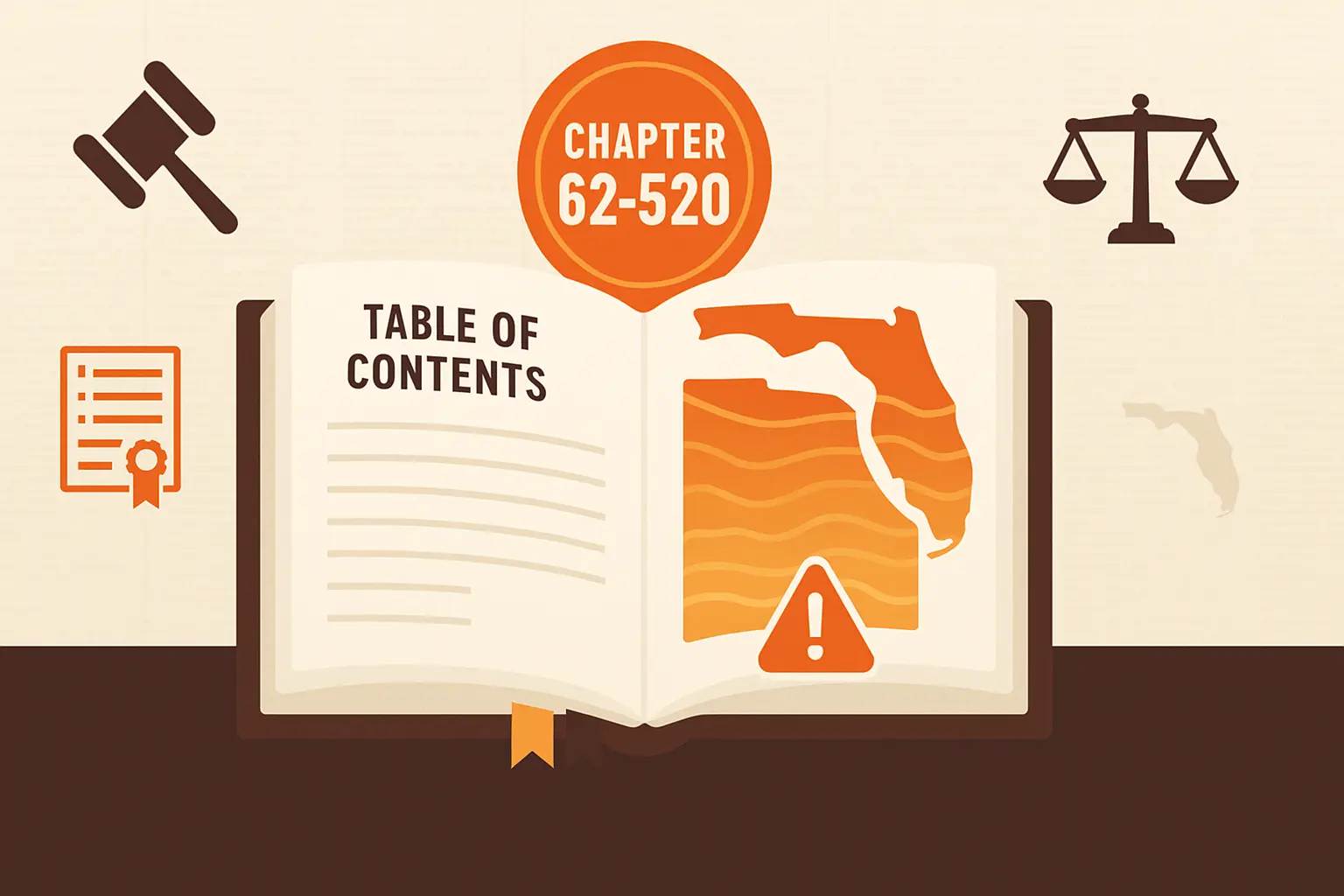
·
Florida Ground Water Regulations – Legal Reference Guide
Chapter 62-520, Florida Administrative Code Quick Reference Navigation Rule 62-520.200 – Definitions Critical Terms You Must Understand Aquifer – A geologic formation capable of yielding significant groundwater to wells or springs. In Florida, this includes the Floridan Aquifer system and surficial aquifers. Existing Installation – A facility qualifying for grandfather provisions. To qualify, you must…

·
Why “Free” Used Cooking Oil Collection Can Cost More Than Paid Services
A comprehensive guide to understanding used cooking oil collection pricing models and choosing the option that actually saves your restaurant money.
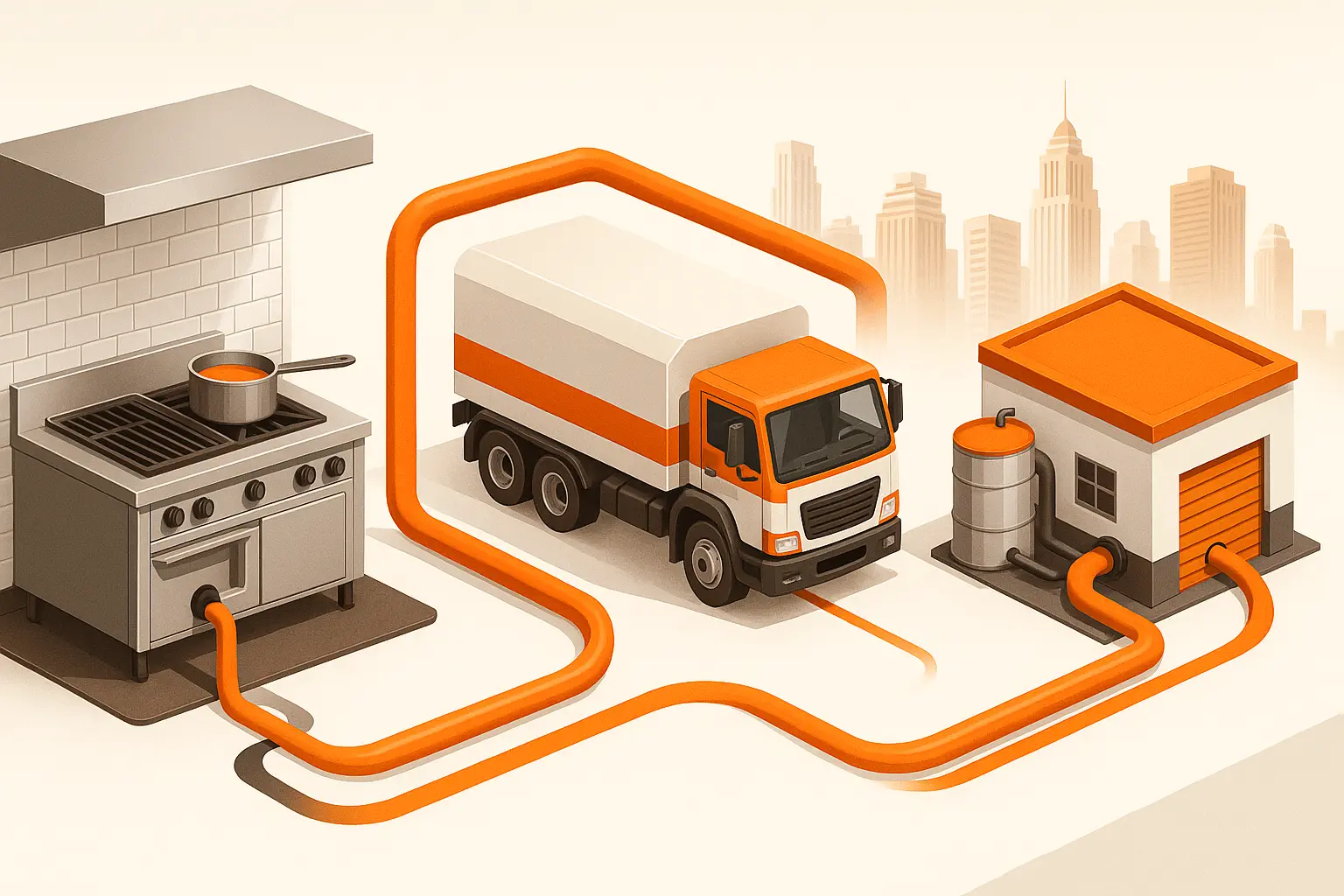
·
Miami’s New Grease Waste Hauler Law (SB 1110): What It Means for Your Kitchen
Florida’s SB 1110 has outlawed “pump‑and‑return.” Haulers must empty your interceptor, deliver every gallon to a licensed plant, and leave a three‑part manifest. Miami kitchens must store those manifests for 12 months and hire DERM‑licensed haulers or face fines up to $5,000.

·
Georgia Grease Ordinance: All County Fees & Deadlines
Every Georgia food‑service facility needs an annual wastewater‑discharge permit, sized grease traps, and documented FOG maintenance. Applications open Jan 1, late after Mar 31 costs 25 % extra, and failed inspections trigger a $100 re‑inspection fee per trap.

·
2025 Georgia FOG Compliance: Checklist, Penalties, Recycling
Georgia requires every food establishment to trap, track, and recycle fats, oils, and grease. Follow this five‑step checklist to meet code, satisfy county inspectors, and dodge costly violations.
Not Sure If We Cover Your Location? Check Coverage Here →
